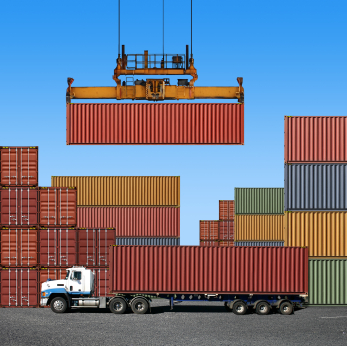Violence, Sabotage & Strike: What's Going On at Port Metro Vancouver?
Intimidation. Brake lines cut. A thrown rock smashing through the window of a truck traveling 70 kilometers per hour on the highway.
It’s getting real at Port Metro Vancouver!
Port Metro Vancouver posted the below security video on Youtube ellegedly of United Truckers Association (UTA) members stopping a truck trying to gain access to Port Metro Vancouver and sabotaging it. The video helped the port gain a federal injuction to prevent protesting truckers from disrupting port activities.
Port Metro Vancouver is the biggest port in Canada, eh? The same Canada that our media likes to make fun of, stereotyping it as overly friendly and passive?
I guess it’s not so passive when it comes to cargo trucking.
We haven’t really talked much about the truckers’ strike happening at Port Metro Vancouver. But you’d better believe we’re paying attention to the situation. And other shipping industry professionals, including carriers/shipping lines, are watching very closely too.
The situation keeps heating up. So what’s going on at Port Metro Vancouver?
It’s been a hard winter for truckers all over North America. Unusually harsh winter weather, especially in the Midwest and East Coast, has caused delays in the supply chain and been very difficult and costly for truckers.
 Many truckers who pick up import cargo and drop off export cargo at Port Metro Vancouver have had enough.
Many truckers who pick up import cargo and drop off export cargo at Port Metro Vancouver have had enough.
Last week, on Wednesday, non-union members of UTA went on strike at Port Metro Vancouver over wages and wait times for picking up cargo. Then on Saturday Unifor members, the unionized UTA colleagues of the truckers already striking, voted unanimously to join the strike.
“… members voted 100 per cent in favor of job action over long line-ups and wait times at the Port of Vancouver taking money out of truckers’ pockets.” [1]
It seems everyone, even the port, agree that wait times are too long; however, Port Metro Vancouver has presented numbers in a press release to suggest the average truck is not waiting excessively long at the port:
Though recently wait times have occasionally been long due to unusually severe weather in the east and elsewhere, GPS data shows the average truck wait time is well within industry standards. Sixty-four per cent of trucks are waiting less than one hour to pick up or drop off cargo, while less than 5% are waiting longer than two hours.[2]
Obviously, truckers don’t think that’s good enough. But Port Metro Vancouver doesn’t appear satisfied with these wait times either as they are working on improvements. The port went on in the press release to say:
We are working with terminal operators and key stakeholders to reduce wait times. The goal for 2014 is to reduce wait times to less than one hour, 75% of the time. The long-term goal is to have 100% of wait times under one hour.
Work being done to reduce weight times for truckers couldn’t prevent a truckers’ strike. It’s important not to forget that wages are a key factor in why truckers are striking.
“Container truckers, like workers across this country, make the economy work,” said Unifor’s national president, Jerry Dias, in a statement. “They deserve to be compensated fairly for their role in generating wealth, but if workers can’t share in that wealth, we’ll help shut that port down until they get it.”[3]
Wages are set by trucking companies, not ports. Trucking companies under bidding each other to get business from shippers plays a large role in pushing truckers’ wages down. Of course, shutting down the port hurts trucking companies and shippers alike.
Despite the strike, all terminals at Port Metro Vancouver have remained open and operational. Though you could not say operations at the port have not been affected.
Since the strike began, there have been reports of intimidation, sabotage, and violence against truckers who are still attempting to access the port.
Even after the injunction to stop disgruntled truckers and others from impeding any individuals or vehicles from entering or exiting the port, these reports of violence and threats continue.
The most dramatic example of violence connected to the truckers’ strike I’ve seen so far is the one mentioned in the opening. A trucker was hit in the head by a rock thrown through his window as he was driving 70 kilometers per hour. The assault could easily have killed him and other motorists on the highway.
Here’s a CBC News video on the story:
We’ll have more on the truckers’ strike at Port Metro Vancouver in our next blog.
![]()
Source: Export

